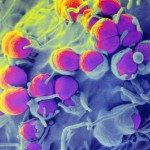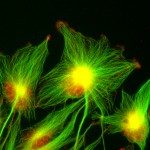Lien vers Pubmed [PMID] – 8890187
Infect. Immun. 1996 Nov;64(11):4424-32
Attenuated salmonellae represent an attractive vehicle for the delivery of heterologous protective antigens to the immune system. Here, we have investigated the influence of the genetic background of the host which regulates the growth and elimination of Salmonella cells on the cellular response induced against a foreign antigen delivered by an aroA Salmonella strain. We have tested CD4+ T-cell responses (cell proliferation and cytokine production) in various mouse strains following immunization with Salmonella typhimurium SL3261 expressing a high level of the recombinant Escherichia coli MalE protein. We were able to detect a CD4+ T-cell response against the recombinant MalE protein only in a restricted number of mouse strains, whereas all mice produced good levels of anti-MalE immunoglobulin G antibodies. The Ity gene did not play a major role in these differences in T-cell responses, since both Ity-resistant and -susceptible strains of mice were found to be unresponsive to MalE delivered by recombinant salmonellae. In contrast, when B10 congenic mice were used, a correlation was established between MalE-specific T-cell unresponsiveness and H-2 genes. The discrepancies described in this paper in the ability of various strains of mice to develop an efficient Th1 response against a recombinant antigen displayed by a live Salmonella vaccine underscore the difficulties that can be encountered in the vaccination of human populations by such a strategy.


